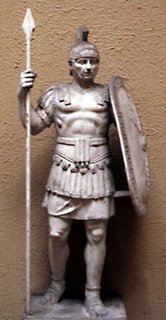
Recieved a blessing from I Thessalonians 2 today. Paul speaks to them, "For yourselves, brethren, know our entrance in unto you, that it was not in vain:" Why was in not in vain? "But. . .we were bold in our God to speak unto you the Gospel of God. . .For our exhortation was not of. . ." fleshly motives. Today's subject can be summed up into one question: Why? Why do I do what I do; why do I speak what I speak? Paul gives several negative characteristics with which they could have spoken, and many had, a couple of which stick out. V.5: "For neither at any time used we flattering words, as ye know, nor a cloke of covetousness; God is witness: Nor of men sought we glory, neither of you, nor yet of others." Paul, Sylvanus, and Timotheus did not carefully strategize their sentences to be inticing and elegant. Nor did they pretend to be passionate about their God (which is what I believe "covetousness" represents in this passage). They were real with the Thessalonians because, as the rest of the book explains, they loved God and they loved the Thessalonians. Elegance in speach seems to be of none affect in the mind of the speaker when he is overcome by love. They also obstained from wrong motives because they realized V.4: "But as we were allowed of God to be put in trust with the Gospel, even so we speak; not as pleasing men, but God, whcih trieth our hearts." This Gospel is mine as a gracious gift. It is not initially mine. It is God's property as it speaks of His Son. Therefore, as God trieth the hearts, God is jealous of my motives, my works, and my fruits, for they are rightfully His. If He is not the center of the previously stated, He is displeased with us. If we do are not in love with God and those He has sent us to, we will end up speaking with wrong motives. It's inevitable. God, try and purge my heart, and receive complete usefulness from me.


